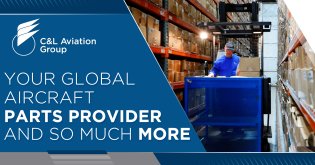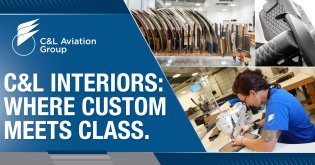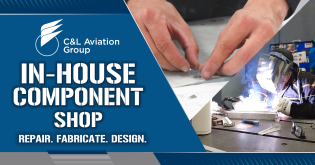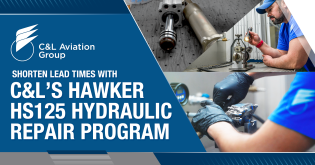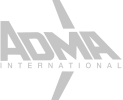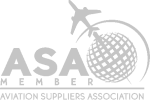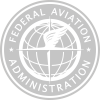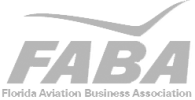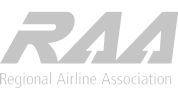Commercial invoices can be tricky to fill out. Different countries may use various forms, so it might be unclear what information is required. If information is missing from a commercial invoice for aircraft parts, shipments could be delayed in customs, resulting in supply issues and delays for the operation’s scheduled flights.
As a global company, we know what needs to be included in a commercial invoice to mitigate delays and issues when clearing customs. We’ll walk you through how to complete a commercial invoice and conclude with some advice for shipping aircraft parts internationally.
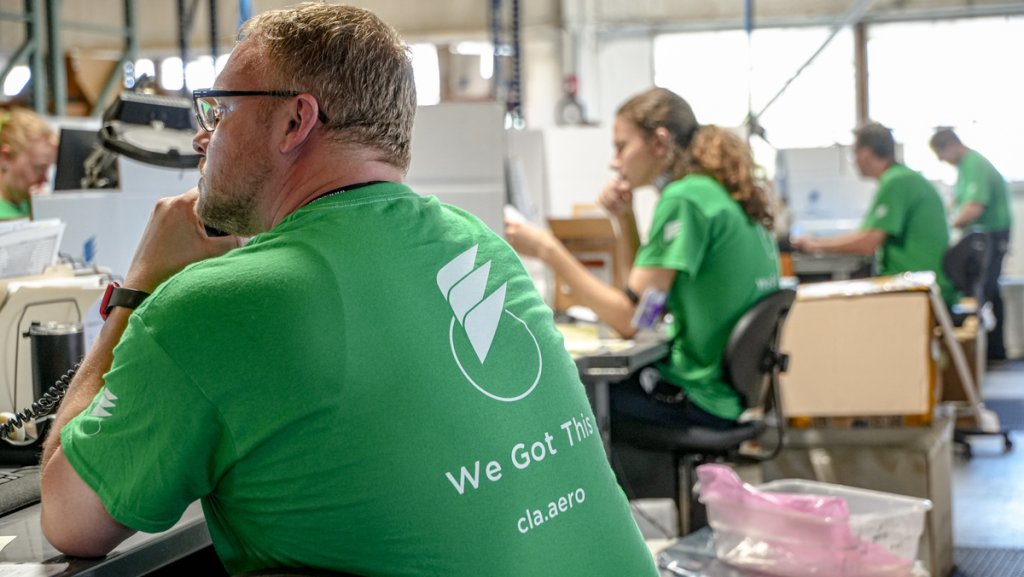
What to Include in a Commercial Invoice
A commercial invoice is a document meant for clearing customs when shipping goods (e.g., aircraft parts) internationally. There is no one format for commercial invoices, but specific information needs to be included across all invoices.
Names, Addresses, and Contact Information
All information on the commercial invoice must be accurate. This includes providing the names, addresses, and contact information for both the shipper and the person receiving the aircraft part. The tax IDs of both the shipper and the receiver may also need to be included on the invoice.
The information about the shipper and receiver must be consistent across all forms and delivery labels. Inconsistencies could result in the shipment being delayed in customs.
Description of the Shipment
Shipping aircraft parts is similar to shipping any other item across borders. The commercial invoice generally includes basic information about the part, such as:
- Part number
- Nomenclature
- Serial number (if applicable)
- Quantity
- Value of item (more on this below)
- Country of manufacture or origin
- Harmonized Tariff Schedule (HTS) Code (more on this below)
How to List the Value of the Aircraft Part on a Commercial Invoice
The value of the aircraft part is used to determine the taxes and duties to be levied on the shipment. The total value (also known as the customs value) is the replacement or outright cost of the aircraft part. The replacement cost is the value of the aircraft part based on its condition.
The customs value must be listed consistently across all paperwork. Any inconsistency could result in customs delays.
What are Harmonized Tariff Schedule Codes?
A Harmonized Tariff Schedule (HTS) code is a set of numbers used to classify the shipped item. For example, aircraft parts may use the following HTS codes to identify the parts and their intended purpose.
- 8803.30.0030 is for Parts of Airplanes Or Helicoptor, Others
- 9801.10.1012 is for Articles returned temporarily for repair, alteration, processing or the like, or the foregoing to be re-exported
- 8411.21.4010 is a Turbo-propeller engine, less than 1100kW, for use in civil aircraft
Additionally, the HTS codes are used to determine the duties and taxes of the item entering customs. Imported parts that qualify as civil aircraft parts may be duty-free under the Agreement on Trade in Civil Aircraft, a plurilateral agreement signed by 33 countries. Unfortunately, not all aircraft parts that can be installed on civil aircraft qualify for duty-free exemptions. If an aircraft part is classified under another HTS code, it must be classified as such. For instance, aircraft tires are categorized as tires and are subject to the same taxes and duties as other non-aviation tires.
Be sure to review HTS codes and correctly label shipments to better anticipate duties and avoid delays.
Incoterms®
A commercial invoice may also need to include the terms of sale or Incoterms®. Incoterms® are internationally recognized rules defining which party is responsible for shipping costs, insurance fees, import tax, and duty charges. Additionally, Incoterms® specifies which party bears any potential risks during transit.

Aircraft Part Commercial Invoice Advice
Consistent Customs Value
The total customs value should be the cost to replace the part (i.e., the outright value). Be consistent with printing the values on the shipping labels, commercial invoices, and other documentation. For instance, if one place states the total customs value while another lists the value of the part as either the exchange or core value, customs may flag the shipment.
Export Control Classification Number
The aircraft part shipment must include the correct Export Control Classification Number (ECCN). The ECCN is a 5-digit identifier used for categorizing items subject to export control restrictions.
Shipping Addresses
Changing the shipping address after the shipment is in process can result in customs flagging the shipment. While it is important to keep information consistent during the shipping process, there are times when information must be changed or corrected. If an address needs to be changed after the part has shipped, submit a new invoice with the correct address to reroute the shipment.
Always Ask Questions
If you have issues completing the commercial invoice or the international shipment, always feel free to ask questions about services related to logistics and customs handling. You can contact the supplier or repair vendor receiving the shipment or the courier or freight forwarder. They should be able to provide you with the customs value or logistics information you need to mitigate the hassle of shipping aircraft parts through customs.

